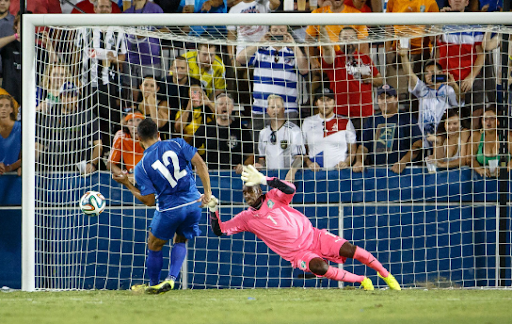The Psychology of Penalty Kicks: What Goes on in a Player’s Mind?
Xoilac is where football fans gather to watch thrilling matches live, but what happens in a player’s mind during a penalty kick? Taking a penalty is more than just striking the ball—it’s a psychological battle where mental strength can be the deciding factor between success and failure. Understanding the psychology behind penalty kicks reveals why some players thrive under pressure while others falter.
The mental battle of penalty kicks
Penalty kicks are a unique moment in football, where the pressure is at its highest. A single shot can determine the outcome of a match, a tournament, or even a career-defining moment. While technique and skill are crucial, the mental aspect often determines whether a player succeeds or fails.
The pressure cooker: Why penalties are so stressful
The moment a player steps up to take a penalty, thousands of eyes are locked onto them. The weight of expectation from teammates, coaches, and fans adds immense psychological stress. In knockout competitions, the stakes are even higher—one miss could send the team home.
Under such pressure, the body releases adrenaline, increasing heart rate and muscle tension. While this can be beneficial in fast-paced gameplay, excessive tension during a penalty kick can lead to miscontrol and poor shot execution. The psychological burden makes penalties one of the most anxiety-inducing moments in football.
The role of nerves and anxiety in performance
Anxiety affects how a player approaches the shot. Those who overthink often hesitate, second-guessing their decision at the last second. This hesitation can result in poorly struck shots, making it easier for the goalkeeper to save.
Players who manage their nerves effectively tend to rely on pre-determined decisions rather than last-minute changes. Studies have shown that experienced penalty takers maintain composure by focusing on their routine rather than the outcome, reducing the negative effects of anxiety.
The science behind the choke effect
The “choke effect” occurs when an athlete underperforms due to overwhelming pressure. In penalties, this happens when a player focuses too much on the significance of the moment rather than executing their technique.
Psychologists explain this through the Yerkes-Dodson law, which states that performance improves with moderate stress but declines when stress becomes too intense. Players who choke often feel paralyzed by fear, leading to weak or inaccurate shots. Recognizing and managing this pressure is key to succeeding in high-stakes penalties.
Read more: Soccer Results and Livescores
Psychological strategies for penalty success
While pressure is inevitable, players can train their minds to handle it better. Mental preparation plays a vital role in increasing a player’s confidence and ability to execute a perfect penalty under stress.
The power of visualization and mental rehearsal
Many top players use visualization techniques before stepping up for a penalty. By mentally picturing themselves scoring, they build confidence and reinforce positive outcomes.
Studies show that visualization helps the brain create neural pathways similar to those activated when performing the actual movement. This technique allows players to feel more prepared and reduces hesitation during the moment of execution.
The importance of routine and muscle memory
One common trait among successful penalty takers is a consistent routine before striking the ball. Whether it’s a deep breath, a set number of steps, or a glance at the goalkeeper, a well-established routine helps players focus and control their nerves.
Muscle memory also plays a crucial role. Players who practice penalties regularly develop an automatic response, making it easier to execute under pressure. The more ingrained the technique, the less likely they are to be influenced by external stressors.
The role of breathing and mindfulness techniques
Controlled breathing is an effective way to reduce anxiety before taking a penalty. Deep, slow breaths help lower heart rate and keep the body relaxed. Many players incorporate breathing exercises into their pre-shot routine to maintain composure.
Mindfulness techniques, such as focusing on the present moment, also help. By blocking out distractions and avoiding overthinking, players can enhance their concentration and improve their chances of scoring.
The mind games between shooters and goalkeepers
Penalty kicks are not just a battle of technique but also a psychological duel between the taker and the goalkeeper. Both sides use strategies to outthink and outmaneuver each other.
The psychology of decision-making for shooters
A penalty taker must decide whether to stick with their initial decision or adjust based on the goalkeeper’s movements. Some players prefer to pick a spot and commit to it, while others wait until the last second to read the goalkeeper’s actions.
Research suggests that players who hesitate often give goalkeepers an advantage. Those who remain confident in their choice tend to strike the ball more cleanly and with better accuracy.
Goalkeeper strategies and psychological warfare
Goalkeepers also use psychological tactics to disrupt the taker’s focus. Delayed reactions, sudden movements, and eye contact are common tricks used to create doubt in the shooter’s mind.
Some goalkeepers deliberately move slightly to one side before the shot, encouraging the taker to aim in the opposite direction. This subtle tactic can manipulate the player into placing the ball where the goalkeeper expects.
The role of body language and confidence
Both shooters and goalkeepers send psychological signals through their body language. A confident stance and controlled breathing can intimidate opponents, while nervous body language may indicate hesitation.
Goalkeepers often use assertive gestures, such as spreading their arms wide or bouncing on their toes, to appear larger and more dominant. Shooters who remain composed and avoid revealing their intentions increase their chances of scoring.
Conclusion
Penalty kicks are as much a test of mental strength as they are of skill. Players who master psychological strategies can improve their ability to handle pressure and increase their success rate. Whether it’s through visualization, breathing techniques, or tactical mind games, the mental aspect of penalties plays a crucial role in determining the outcome.






